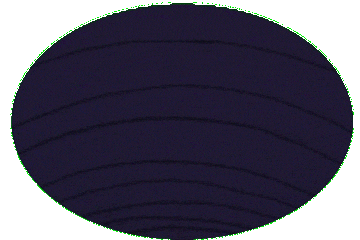Rick Wakeman played piano on an early take of Harry Nilsson's version of "Without You."
I tried it in one key and nearly got hemorrhoids singing it. So we changed that and decided that the keyboard part was too busy, too complex.
So we replaced Rick Wakeman with Gary Wright and he began, just like you hear on the record, very simple. It was just right![1]
In a 2019 interview, Wakeman recalled:
I got called at midnight to do a session for Harry Nilsson. He had flown into London and couldn’t sleep. He went into Trident Studios and booked four of us to go in there and work with them. And basically, he came down, sort of sat at the piano, went through a rough idea of a song. Myself and [bassist] Herbie Flowers and the other guys, we just sort of went, “Okay.” And then, he went up to the control room, which was up the stairs.
We sort of ran through what he said a little bit and then didn’t hear anything [from him]. Eventually after about half an hour, I said, “I’ll go upstairs and find out what he thinks.” I went upstairs and he was lying across the control desk, fast asleep and snoring. So, I came down, I said, “I think he’s got jet lag.”[2]
Richard Christopher Wakeman (born 18 May 1949) is an English keyboardist and composer best known as a member of the progressive rock band Yes across five tenures between 1971 and 2004, and for his prolific solo career. AllMusic describes Wakeman as a "classically trained keyboardist extraordinaire who plied his trade with Yes and developed his own brand of live spectacular in a solo act." Born and raised in West London, Wakeman quit his studies at the Royal College of Music in 1969 to become a full-time session musician. His early sessions included "Space Oddity", among other tracks, for David Bowie, and songs by Elton John, Marc Bolan, Cat Stevens, and Lou Reed. In 1970, Wakeman joined the folk rock group the Strawbs, during which his virtuosity gained national press coverage. He left in 1971 to join Yes, with whom he played on some of their most influential albums across two stints until 1980. During this time Wakeman began a solo career in 1973 and became an iconic and prominent figure in progressive rock. His highest-selling and most acclaimed albums were The Six Wives of Henry VIII (1973), the UK number-one Journey to the Centre of the Earth (1974), and The Myths and Legends of King Arthur and the Knights of the Round Table (1975), all concept albums. In 1974, he formed his band the English Rock Ensemble, with which he toured worldwide and continues to perform, and went on to score his first major film, Lisztomania (1975). Wakeman had uneven success in the next two decades following a change in musical fashion and financial issues from two divorces. His most popular album was the conceptual rocker 1984 (1981), which was followed by the minor pop hit single "Glory Boys" from Silent Nights (1985). He expanded into other areas such as hosting the television show GasTank, composing for television and film, forming record labels, and producing his first new-age, ambient, and Christian music with Country Airs (1986) and The Gospels (1987), respectively. In 1988, he reunited with former Yes bandmates for Anderson Bruford Wakeman Howe, which led to his third period in the group until 1992. Wakeman's most significant album of the 1990s was Return to the Centre of the Earth (1999), his first UK top 40 album in 18 years, and his piano album Piano Portraits (2017) produced his first UK top 10 album since 1975. Starting in 2009, Wakeman revisited his three hit albums of the 1970s by performing them live with new and expanded arrangements. From 2016 to 2020, Wakeman was a member of Yes Featuring Jon Anderson, Trevor Rabin, Rick Wakeman. He continues to record albums and perform concerts worldwide in various capacities. His most recent album was Melancholia, released in October 2025. Wakeman's discography includes over 100 solo albums spanning a range of musical styles. He has also gained fame for his appearances on the television programs Live at Jongleurs, Countdown, Grumpy Old Men, and Watchdog, and for his radio show on Planet Rock that aired from 2005 to 2010. Wakeman has written an autobiography and two memoirs. In 2017, he was inducted into the Rock And Roll Hall of Fame as a member of Yes. He was awarded a CBE for his services to music and broadcasting in 2021.
This article uses material from the Wikipedia article "Rick Wakeman", which is released under the Creative Commons Attribution-Share-Alike License 3.0.
- [1] Dan Matovina. Frances Glover Books (2000) "Without You: The Tragic Story of Badfinger"
- [2] Musicscribe, Bill Kopp (2019-10-08) "A Session with the Session Man: Rick Wakeman" (https:/
/ )blog. musoscribe. com/ index. php/ 2019/ 10/ 08/ a- session- with- the- session- man- rick- wakeman- part- on. . .







![Rick Wakeman - Melancholia - Deluxe [New CD] With DVD, NTSC Region 0, UK - Impor Rick Wakeman - Melancholia - Deluxe [New CD] With DVD, NTSC Region 0, UK - Impor](https://i.ebayimg.com/images/g/4rsAAeSwBZtpHaMq/s-l225.jpg)

![Rick Wakeman - Live At The London Palladium 2023 [New CD] Rick Wakeman - Live At The London Palladium 2023 [New CD]](https://i.ebayimg.com/images/g/V48AAeSwYgVpHhZU/s-l225.jpg)


